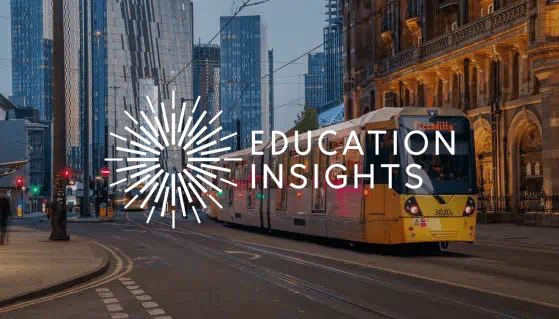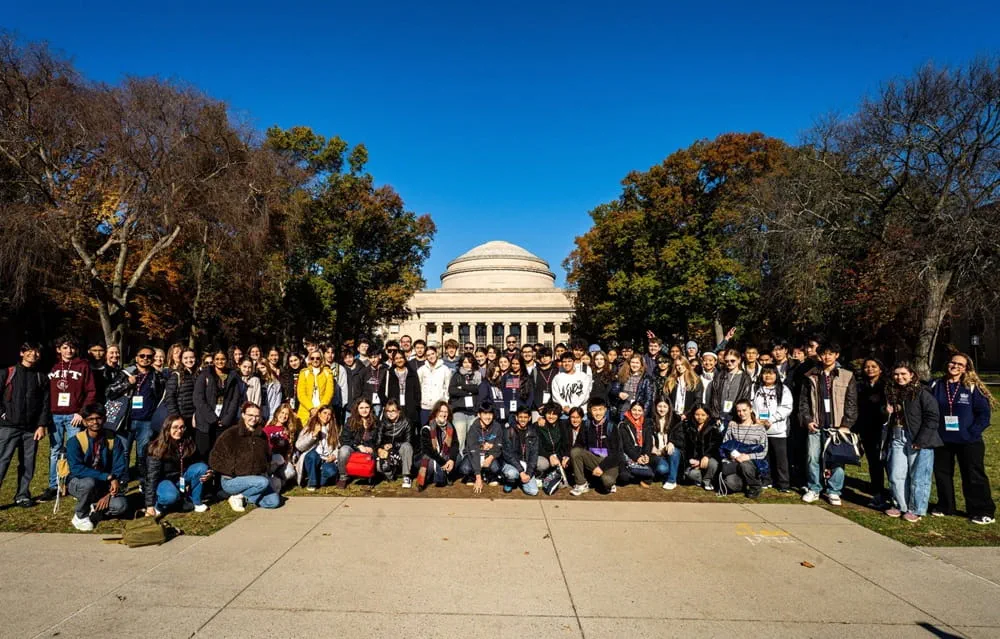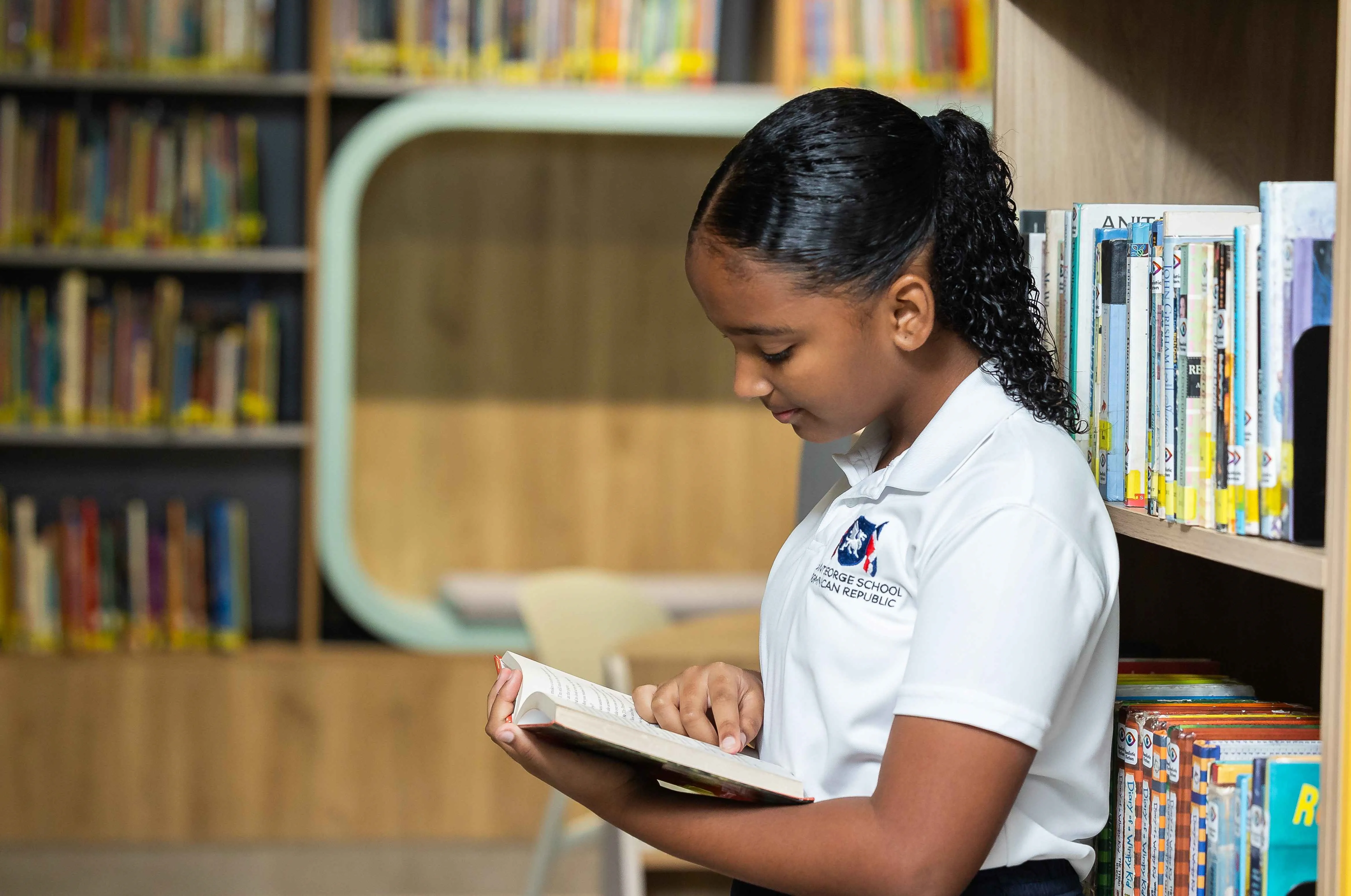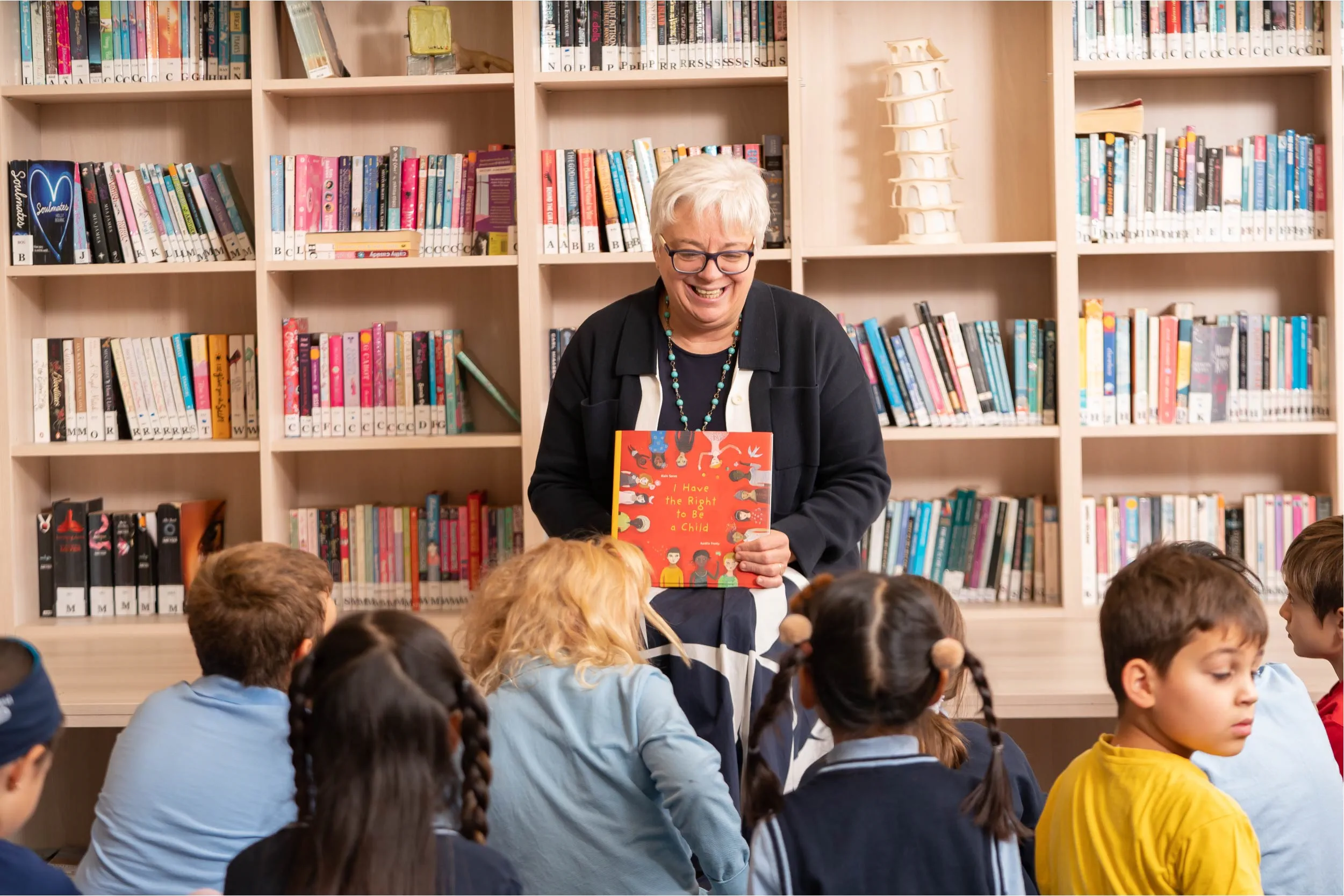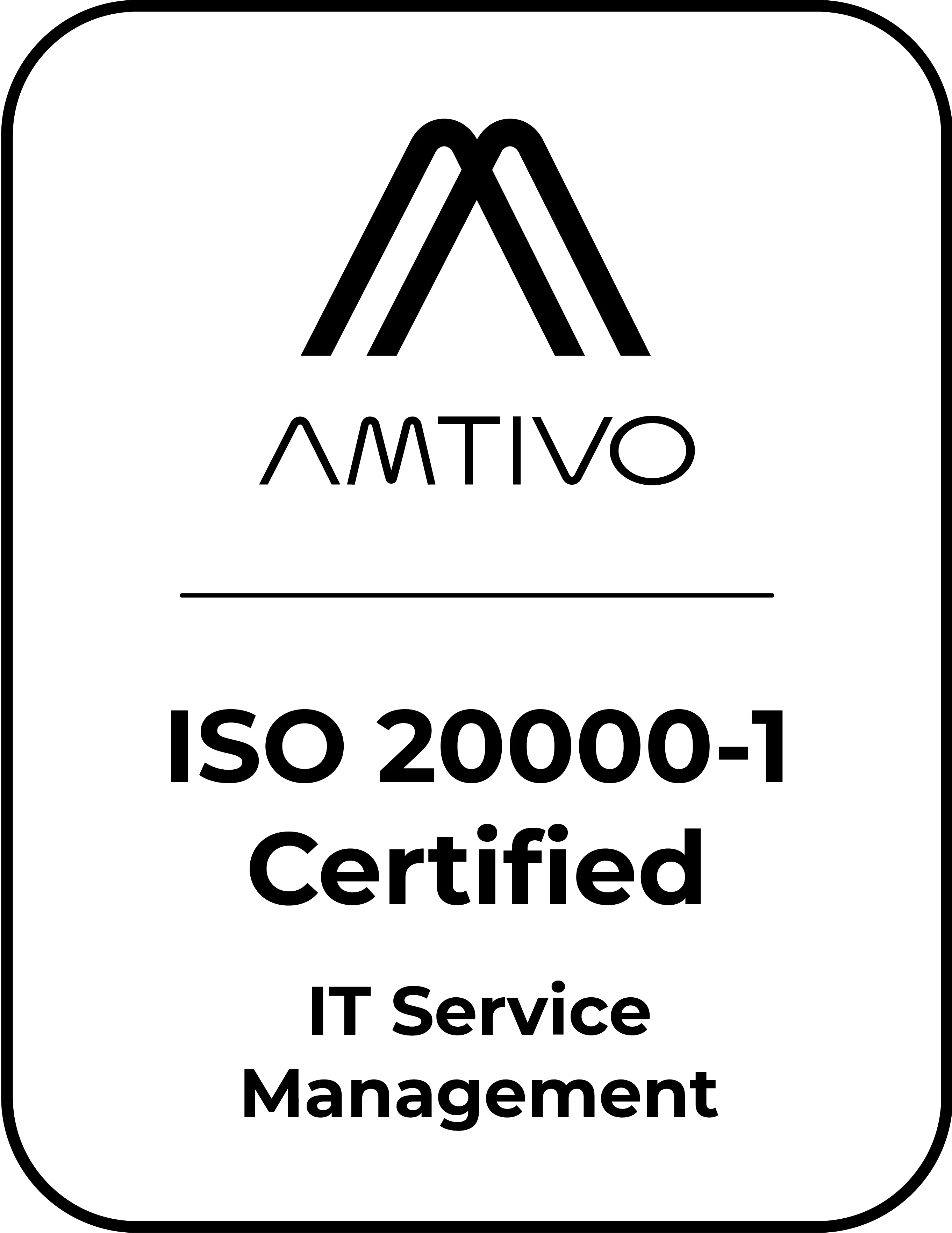Getting your child excited about space and beyond Getting your child excited about science, technology and space exploration may be a daunting task. For many students, learning about space can feel like learning a foreign language. We sat down with Anu Ojha OBE, Director of the UK National Space Academy and Director of the National Space Centre, after he paid a visit to Nord Anglia Education schools in China, to get some sound advice on how to inspire your child as well as opportunities available to nurture their interests in space and technology!
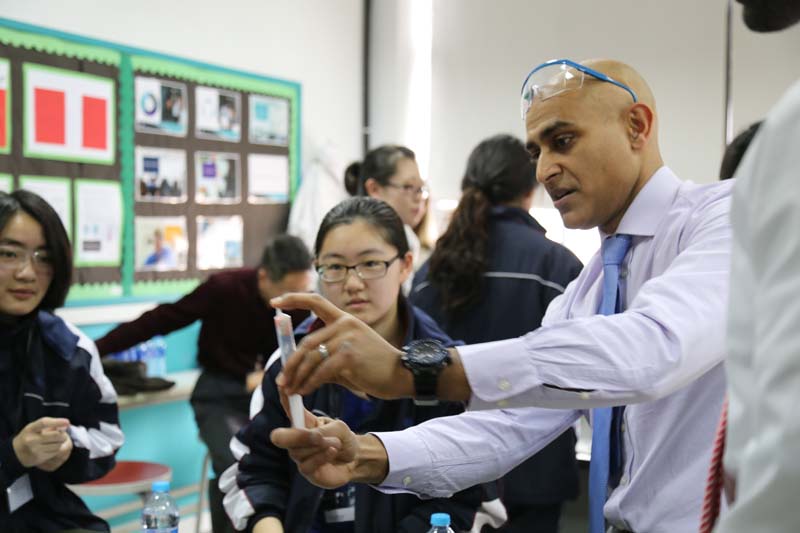
Getting your child excited about science, technology and space exploration may be a daunting task. For many students, learning about space can feel like learning a foreign language. We sat down with Anu Ojha OBE, Director of the UK National Space Academy and Director of the National Space Centre, after he paid a visit to Nord Anglia Education schools in China, to get some sound advice on how to inspire your child as well as opportunities available to nurture their interests in space and technology!
Anu Ojha, Director of the UK National Space Academy, teaches students about the chemicals used in space exploration at Nord Anglia International School Shanghai, Pudong .
1) How can parents and teachers help students become more excited about maths, science, engineering, technology? For many students, these are difficult subjects to tackle.
I think it’s getting students to think beyond what they are seeing in the classroom – to understand the tremendous applications of science, maths and engineering in a variety of contexts and in a variety of career routes. Maths is the language of the Universe – and also the language of business. In my experience, once students understand the true value of these subjects, they are more inclined to persevere when the going may get tough, so to speak!
2) What is your advice to students who want to become scientists, engineers or astronauts one day?
Having people literate in the languages of science and mathematics is a key factor in maintaining societal progress. By following a route that ends up with having higher qualifications in these areas, there is virtually no limit to the opportunities possible.
In terms of the space sector, most people immediately think of astronauts, of course. We need to remember that the number of people who have ever been into space is less than 600. However, the astronauts are the tip of an iceberg. For every astronaut we see there are thousands of essential space workers in fields ranging from rocket propulsion to life support to space medicine – and so there is far more to “space” than being one of the lucky few who venture beyond the atmosphere.
In addition, there is a whole range of space activity that has nothing to do with human space exploration such as global television satellite broadcast, weather forecasting, climate monitoring, storm warnings, GPS applications and environmental monitoring of the Earth from space. Services from space are an essential part of our 21st century way of life – and we need the next generation of space sector workers across all of these fields if we are to continue the amazing progress we’ve made – both in space exploration but also in astronomy and using science and services from space for the betterment of life on Earth.
3) What advice do you have for parents who have children aspiring to become astronauts one day? Is it a pipe dream?
It’s not a pipe dream – but it shouldn’t be a prime focus. My main advice would be to focus on a career you really enjoy and to demonstrate excellence in that field. This then leaves the doors open for application when opportunities come up to apply to National Astronaut Programmes. Successful candidates have come from previous careers as diverse as piloting, medicine, school-teaching and even law. As long as they have a background (preferably at Masters level) in science, engineering, mathematics, and medicine and a number of years of successful experience then they are eligible for selection.
We should also now recognise that young people will be working for longer than ever before and are much more likely to have several distinct career paths during their working lives. Having the most powerful suite of qualifications is what will maximise their opportunities for the future. Qualifications in science, engineering and mathematics are amongst the most valuable educational currency that young people can have – they open doors of opportunity in the future that students may not even know exist.
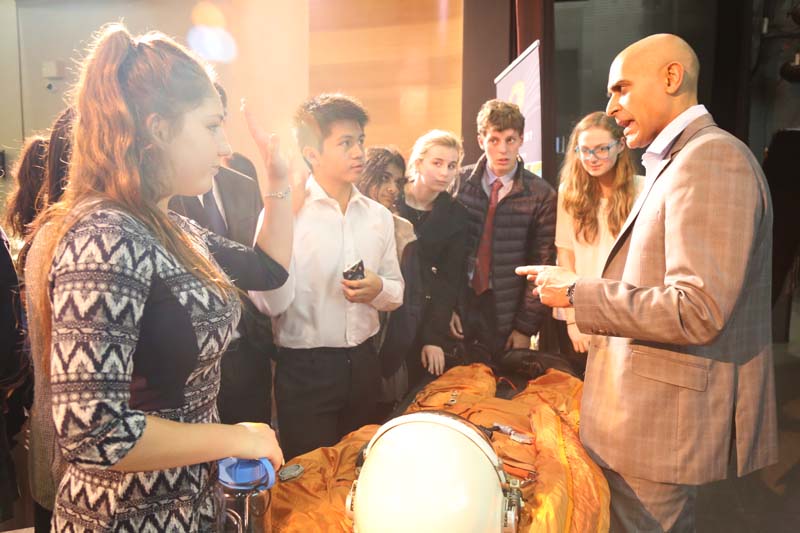
Anu Ojha explains to students the various materials used to make astronaut suits at Nord Anglia International School Shanghai, Pudong.
4) Why did you decide to develop the National Higher Apprenticeship programme? Can you tell us more about the programme?
Back in 2013, the UK Government realised that a key challenge to keep growing our space sector was to develop a new vocational route for people to go straight into the workforce after their A-levels or equivalent rather than to go to University. We – the National Space Academy and Loughborough College - were tasked with creating the national framework for the programme which includes students studying part-time for the first two years of a degree in Engineering (validated by the University of Leicester). In this way they are not saddled with huge amounts of debt but instead are earning money in their jobs whilst furthering their academic qualifications through traditional lectures, tutorials and work-based learning. A number of the UK’s leading space companies gave their time in helping shape the course and the first cohort of students started in 2015.
5) What inspired your interest in space?
I am part of a generation who was inspired by humanity’s greatest voyages of exploration – the Apollo lunar landings – back in the 1960s. The final lunar landing mission – Apollo 17, with its spectacular night launch of the huge Saturn V rocket in December 1972, remains seared in my memory as one of my earliest recollection. By the time NASA’s Viking missions successfully touched down on the surface of Mars in the summer of 1976, I was hooked – for life! Looking up at the night sky has always provoked questions: Who are we? Where are we? Are we alone? Looking at the Earth from space itself has revealed to us what an astonishing planet our home world is. Any alien visitors to our solar system would see a place where the astonishing array of life over billions of years has changed even the geological structure of the planet—a truly unique place in the solar system.
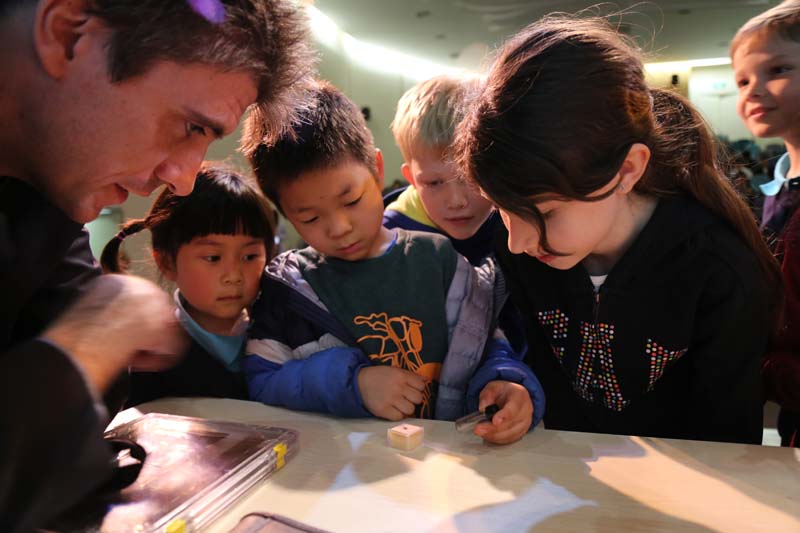
Nord Anglia Education students in Shanghai, China, learn about the various materials used in space exploration.
6) Anything else you would like to tell our students?
Having said all of the above, my final thoughts may seem surprising. Of course, the National Space Academy has, as a major focus, the increase in the number of people with science, engineering and mathematics qualifications—not just for the space sector but for the wider fields of related career paths including everything from aerospace to medicine to engineering in all its forms. I recognise that this workforce will be a fraction of the total global workforce. What’s as important is having a population who have developed critical thinking skills – those skills that are at the heart of science and engineering. These will translate into virtually every aspect of human society – and just as importantly, I want people to never lose their sense of wonderment at how astonishing the Universe is – and how very special our home planet is also.
About Anu Ojha OBE
Anu Ojha OBE has led the development of the National Higher Apprenticeship programme for the UK Space Sector and is paving the way for the ongoing collaboration between the UK and China on Space Science and Technology. Ojha has also worked with NASA and the European Space Agency on several projects.



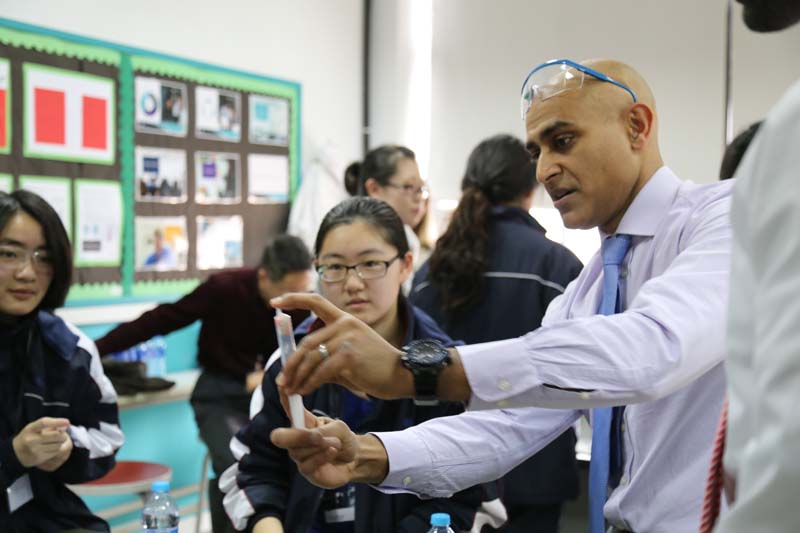
.jpg?h=249&iar=0&w=374&rev=03bee5ab1d2c41fabd2c427ac897415e&hash=38A635EBCF2CE5A181170C066BB49369)



